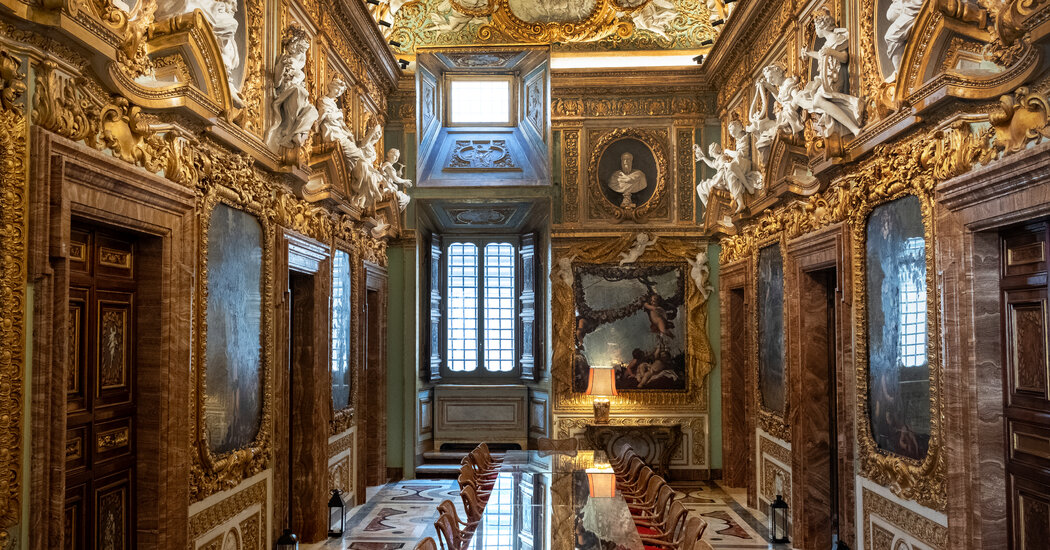On a recent June evening, guests in the magnificent dining room of the Palazzo Vilòn feasted on a Baroque-themed dinner amid centuries-old mirrors painted with cherubs, inlaid marble floors and a ceiling so lavish, the table’s surfaces were mirrored to savor the frescoes. The interior designer toasted the new hotel, calling it a temple to “privacy and experience,” which, given all the operatic singing and Aqua Mirabilis-spiced wine, imbued the event with an eerie Fidelio-is-the-password vibe.
Essentially a super-deluxe annex to the already super-deluxe Hotel Vilòn across a private garden, the Palazzo Vilòn sits at the tip of the long harpsichord-shaped Palazzo Borghese that curves between the Tiber River and the Via del Corso. It has a swimming pool, private disco club and sumptuous living rooms named after Roman gods. Its three spectacular bedrooms, one in a former chapel under a cupola, is imagined, the hotel managers say, as a Roman refuge for Arab sheikhs, Harry and Meghan, and Hollywood royalty.
But when the actors Daniel Craig and Rachel Weisz tried to stay here for a recent extended visit, Claudio Ceccherelli, the chief executive of the Shedir Collection, which runs the Palazzo Vilòn, said, the asking price had too many zeros for 007.
“Didn’t offer enough money,” he said.
The whole place cost an average of 25,000 euros — nearly $27,000 — a night. (Laura Symons, a publicist for Mr. Craig, declined to comment.)
It’s not even the highest rate on the block. Just down the Via di Ripetta, in the heart of Rome, the freshly unveiled Bulgari Hotel Roma, with hallways showcasing jewels, has a premier one-bedroom suite overlooking the Mausoleum of Augustus. It costs 38,000 euros, or about $41,000, a night.
Rome, a city striated with epochs and contradictions, has always been a mix of the highest and the lowest, emperors and slaves, nobles and knife-wielding thieves, decadent do-nothings and hard-working stiffs. Even so, there is something particularly surreal about the current moment, when the city is becoming increasingly awash in exorbitant hotel options even as it feels the grip of what Romans call the degrado, or degradation, a more than 15-year slide into an often anarchic and acrid state of abandon.
In the spring, riotous vegetation bordering the sidewalks can reach Jurassic proportions. In the summer, garbage bakes in overflowing dumpsters. Throughout the year, fluorescent orange construction fencing is wrapped around seemingly…
Click Here to Read the Full Original Article at NYT > Travel…
